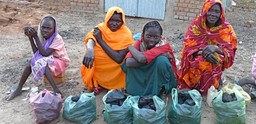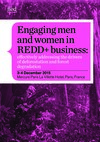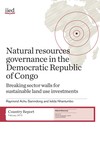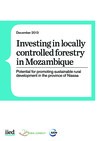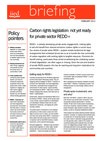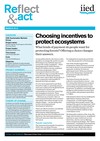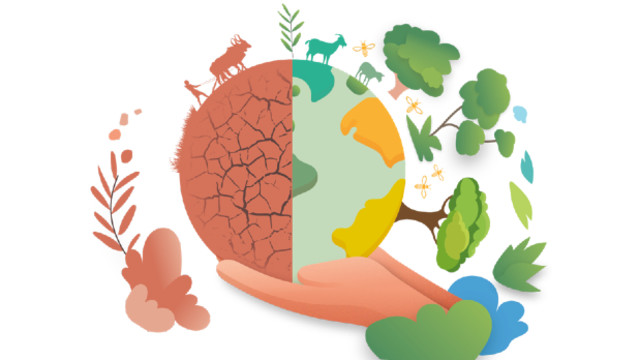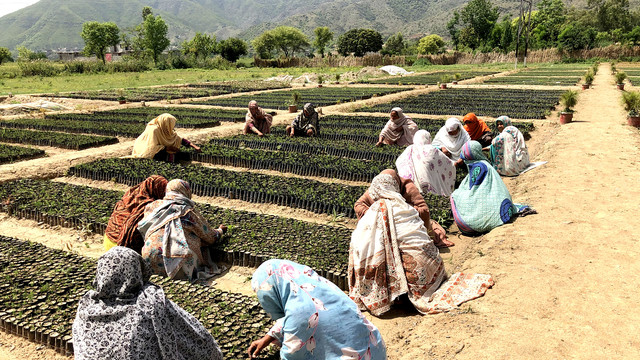Inclusive environmental investments
Inclusive environmental investments, from both public and private sector finance, are essential if local forest people are to benefit from deals that are both fair and support climate change adaptation and mitigation measures.
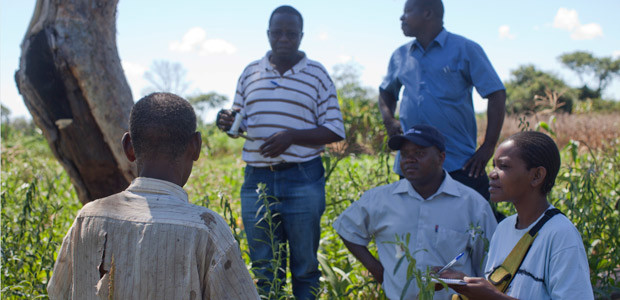
A team designing a REDD strategy talk to farmer Nimale Maribu Saidi as part of their field research in Meceburi Forest Reserve, Mozambique (Photo: copyright Mike Goldwater)
In recent years, many efforts have been made to develop and agree mechanisms and commitments at an international level for mitigating and adapting to climate change.
One of the best-known climate change mitigation mechanisms relating to forestry is REDD+, which aims to compensate countries that can demonstrate they have contributed to reducing greenhouse gas emissions from land use and land use change, as well as conserving, sustainably managing or enhancing forests.
Reducing Emissions from Deforestation and Forest Degradation (REDD) is an effort to create a financial value for the carbon stored in forests, offering incentives for developing countries to reduce emissions from forested lands and invest in low-carbon paths to sustainable development. REDD+ goes beyond deforestation and forest degradation, and includes the role of conservation, sustainable management of forests and enhancement of forest carbon stocks” – UN REDD
Much of IIED’s work on inclusive investments currently focusses on REDD+. We are carrying out work to ensure that investment in REDD+ processes and the implementation of REDD+ projects is:
- Fair and inclusive
- Avoids deforestation and forest degradation, and
- Reduces poverty at the same time.
This links with our work on payments for environmental services and previous work on company-community partnerships.
In looking at how to make REDD+ processes more inclusive we are carrying out research in two main areas:
- To what extent do women participate in REDD+ decision-making processes and what role do they play in relation to deforestation and forest degradation? This includes looking at what point in the value chain women are involved and how this might affect strategic interventions for addressing the causes of deforestation.
- How the private sector is engaged in REDD+ and what policy and institutional frameworks exist to enable this to happen. Based on this analysis, what are the key issues arising from this engagement?
We are also looking at the practical implications of REDD+ on the ground in Mozambique, where we are currently working with partners in testing REDD+ delivery models in the Beira Corridor, a strip of land running through Mozamibique to Zimbabwe’s eastern border. This is a continuation of the work that we have been carrying out through a South-South initiative between Brazil and Mozambique to help Mozambique prepare for REDD+ by drawing on Brazil’s experience.
IIED is also examining the impact of REDD+ on poverty and sustainable development by working with in-country teams in Brazil, Ghana, Tanzania, Uganda and Vietnam to analyse the costs and investigate the practical economics behind different delivery mechanisms and the relative costs and benefits of potential models for REDD+.
IIED’s Climate change group is also developing work around understanding the political economy of the Climate Investment Funds.
News and updates
Publications
Additional resources
Deep REDD+: lessons from a South–South– North collaboration, Isilda Nhantumbo (2012), IIED Reflect & Act
